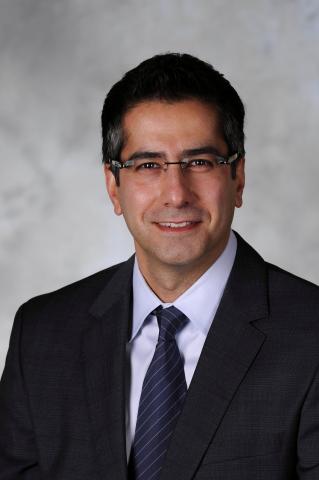event
Nano@Tech: IMU-on-a-Chip: MEMS and CMOS Microsystems
Primary tabs
IMU-on-a-Chip: MEMS and CMOS Microsystems
Farrokh Ayazi - Ken Byers Professor of Electrical Engineering
Georgia Institute of Technology, Atlanta, GA
Co-Founder and CTO, Qualtré Inc., Marlborough, MA, USA
Abstract: The motion of an object in space can be mapped through the use of an inertial measurement unit (IMU), which comprises of accelerometers and gyroscopes. Accelerometers measure linear motion (axial acceleration) while gyroscopes measure rotation (angular velocity). IMUs are sometimes augmented by magnetometers, which provide heading information by measuring the earth magnetic field, and barometers for measuring atmospheric pressure to determine the relative altitude of an object. Such motion and position measurement and processing units can be used in a myriad of applications including robotics, gaming, user interfaces, unmanned air vehicles, and IoT. They can also enable in-door navigation through sensor fusion when GPS is not reliably available or where higher resolution is required. The gyroscope resolution and drift have been the bottleneck in achieving accurate and extended periods of navigation using silicon IMU chips. High-Q bulk acoustic wave (BAW) modes of a silicon resonator can be used to sense rotation around all three axes without being affected by linear motion. If these modes have identical frequencies and are coupled through Coriolis effect (i.e. gyroscopic modes), the sensitivity of the device is amplified by the Q-factor of the modes, which can reach a few millions, reducing power consumption and improving sensitivity. This talk will discuss strategies to integrate, operate and self-calibrate high performing MEMS inertial sensors using CMOS interface ICs and present a scalable manufacturing platform that enables the co-integration of a wide array of MEMS and NEMS sensors and actuators with CMOS for creation of 3D Integrated Microsystems. The nano-gap capacitive transducers implemented using the HARPSSTM process enable system-on-chip (SOC) integration of all IMU components with many more sensor and actuator using a foundry-compatible monolithic process.
Bio: Farrokh Ayazi is a professor of Electrical and Computer Engineering and the director of the Center for MEMS and Microsystems Technologies at Georgia Tech. He received the B.S. degree in electrical engineering from the University of Tehran, Iran, in 1994, and the M.S. and Ph.D. degrees in electrical engineering from the University of Michigan, Ann Arbor, in 1997 and 2000. His main research interest lies in the area of integrated micro and nano electromechanical systems (MEMS and NEMS), with a focus on resonators and inertial sensors. The author of over 200 refereed technical and scientific articles, he and his students have received several best paper awards at international conferences. He is an editor for the IEEE Transactions on Electron Devices and a past editor for the IEEE/ASME Journal of Microelectromechanical Systems. He was the general chair of the IEEE Micro-Electro-Mechanical-Systems (MEMS) conference in 2014. Dr. Ayazi is the co-founder and CTO of Qualtré, a spin-out from his research laboratory that commercializes bulk-acoustic-wave (BAW) silicon gyroscopes and inertial sensors for personal navigation systems. He is a Fellow of the IEEE and holds 42 patents.
Groups
Status
- Workflow status: Published
- Created by: Christa Ernst
- Created: 10/31/2014
- Modified By: Fletcher Moore
- Modified: 04/13/2017
Categories
Keywords
User Data
Target Audience

